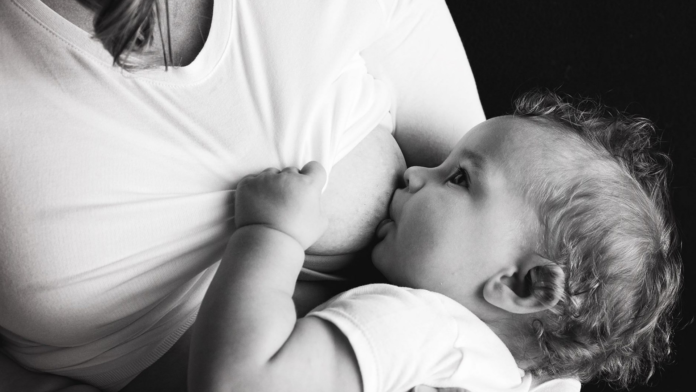The World Health Organization recommends exclusive breastfeeding for the first six months of a newborn’s life to protect against infections, prevent chronic disease and lower the risk of infant mortality. But breastfeeding, particularly exclusive breastfeeding, is not easy, and sometimes impossible for new mothers.
In 2012, 26% of Canadian infants were exclusively breastfed for six months, putting us at the top of a poor performing group, ahead of the USA with 19%, Australia with 15% and the UK with a measly 1%.
For some women, medical conditions such as low milk supply, incompatible medications and maternal infection can prevent breastfeeding. But even in mothers who are medically able, there are many complex reasons for low breastfeeding rates, including social stigma and a lack of prenatal breastfeeding education. Now, researchers at the universities of Manitoba and Alberta are studying how Instagram could help support and normalize breastfeeding.
The researchers analyzed over 4,000 images and 8,300 comments posted with the popular breastfeeding‐related hashtags #breastfeeding, #breastmilk, #breastisbest and #normalizebreastfeeding. The results were overwhelmingly positive.
The researchers found a community of women using Instagram to share breastfeeding experiences, build confidence, and address challenges faced during the breastfeeding learning curve. Although highly personal, there was virtually no hostile content. In fact, any ‘antagonistic content’ tended to focus on the #breastisbest hashtag, and concerns around the stigmatization of women who do not or cannot breastfeed. Overall, the researchers describe the coverage of breastfeeding on Instagram as ‘celebratory’ and ‘journalistic’.
“We know that there are many complex and interconnected reasons for low breastfeeding rates. One contributing factor is social stigma – new mothers sometimes receive negative attention when nursing in public, and may be told to cover up or take their breastfeeding elsewhere,” says one of the study’s lead authors Meghan Azad, a scientist at the Children’s Hospital Research Institute of Manitoba and an assistant professor in the Rady Faculty of Health Sciences at the University of Manitoba.
“To see a major platform like Instagram being mobilized to normalize breastfeeding and build support networks for moms is encouraging.”
At a time when social media use is increasing, understanding both the often-cited negative impacts on mental health, anxiety and depression, while also understanding and fostering its potential as a positive influence on health behaviours is becoming increasingly important.
This understanding will be particularly valuable as social media platforms struggle to balance between freedom of expression and censoring ‘sensitive content’. Although breastfeeding images are now allowed, even supported, on Instagram and Facebook, this is still a relatively new, and not infallible rule.
Alessandro Marcon, a research associate in the Health Law Institute at the University of Alberta and co-lead of the study explains, “Social media platforms where users play an increasingly active role in the kinds of information they receive, might offer a unique space where constructive breastfeeding promotion, support, and education can take place. This could help women feel more comfortable breastfeeding in public, reduce criticism and negative comments, and lead to better understanding and support when it comes to challenges – all of which could contribute to increased breastfeeding rates.”
Although breastfeeding is instinctual for babies, it is a learned, and often challenging skill for new mothers. Instagram is a prime target for campaigns to support or promote breastfeeding that make use of personal ‘support group’ style connections and reach beyond the current largely white female #breastisbest community to challenge societal stigma, build breastfeeding confidence and “normalize” breastfeeding across Instagram’s large and diverse global community.








































